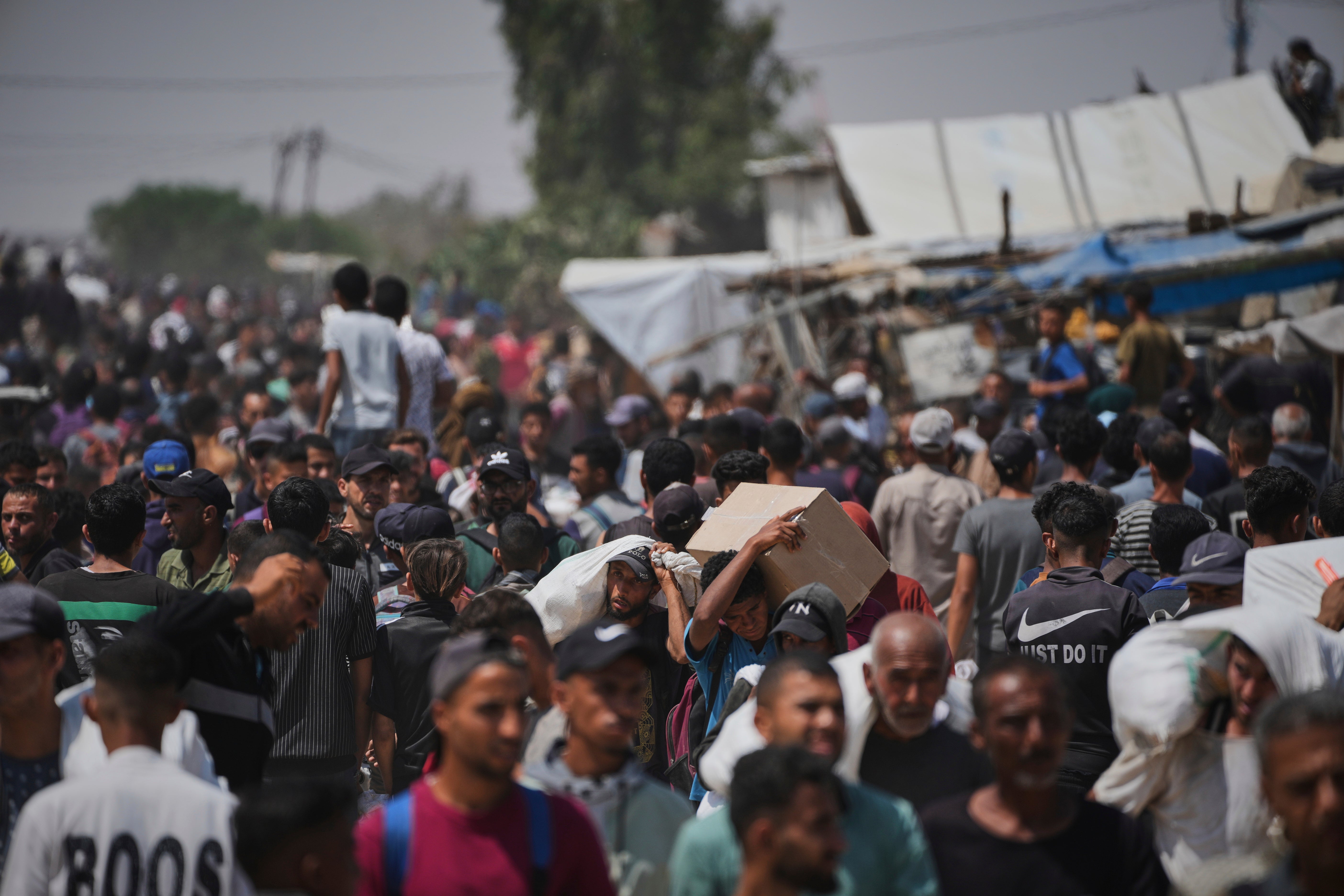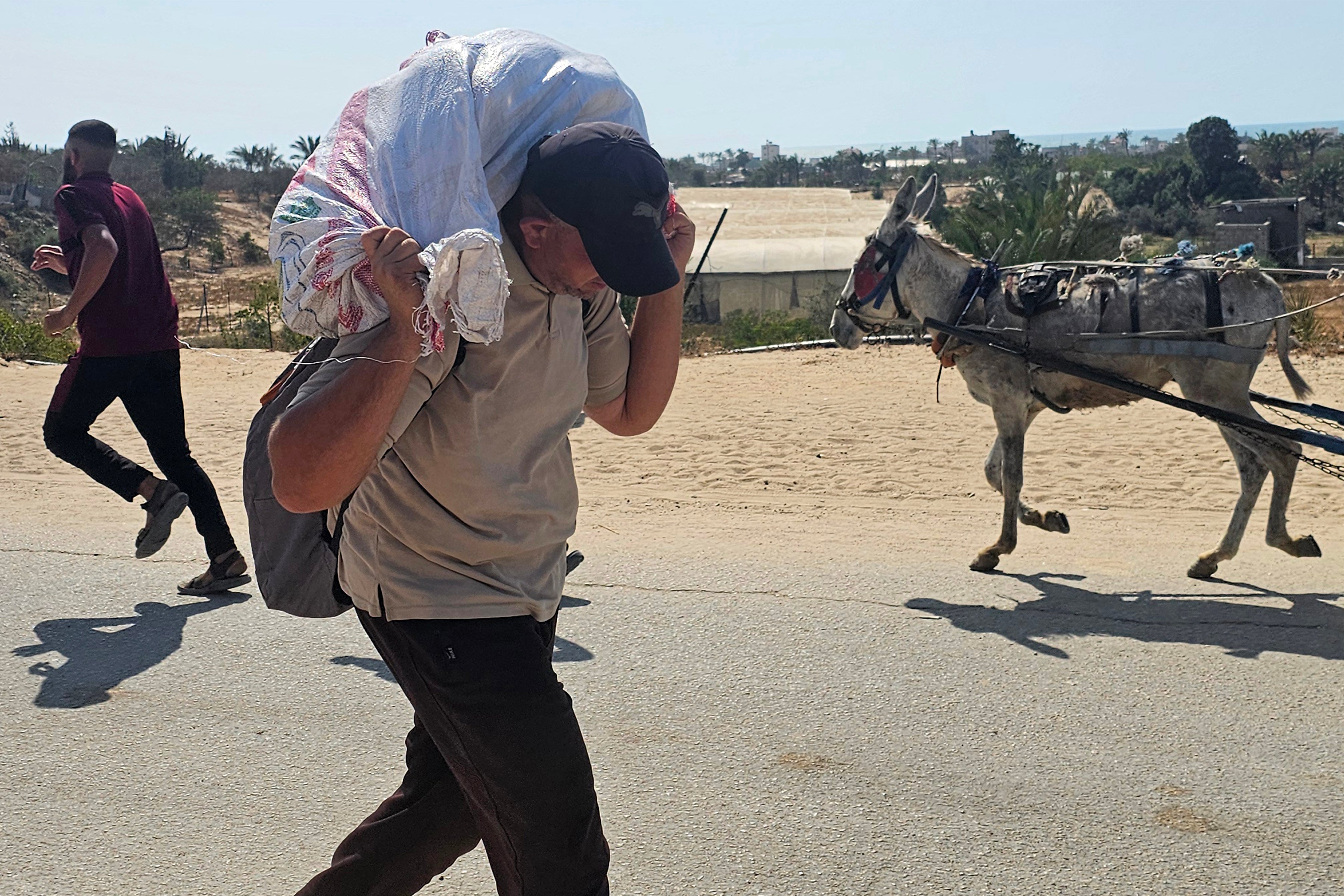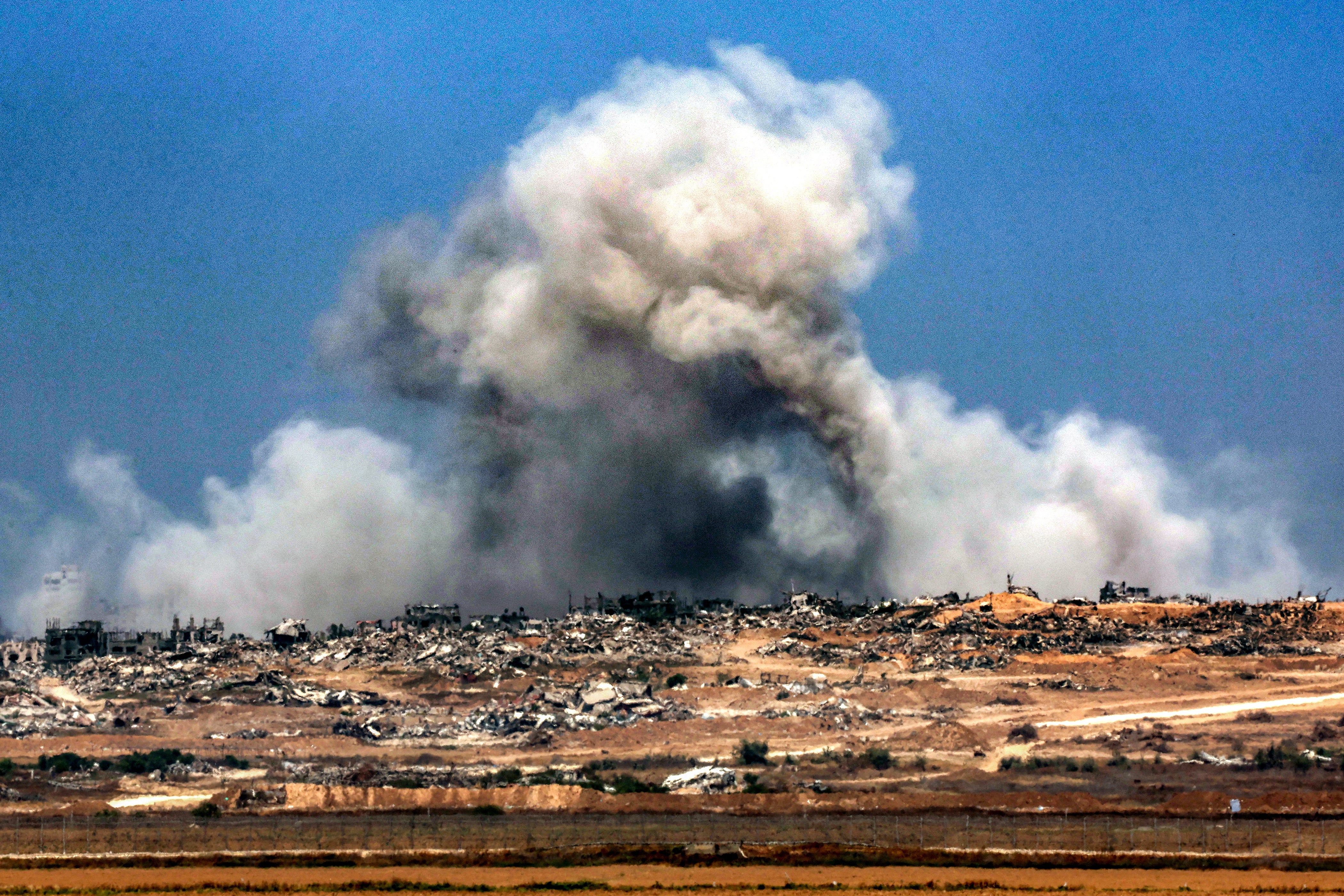The Israeli-supported Gaza Humanitarian Foundation (GHF) is already failing at providing aid to the enclave’s starving population and creating a fatal “added layer of risk”, aid agencies have told The Independent.
The GHF, run by a private group of US military contractors and endorsed by the Israeli military, announced on Friday that all of its distribution centres in Gaza would close until further notice.
It is the second time this week that the US-backed organisation has urged Palestinians to stay away from all of its three centres for safety reasons following a series of deadly shootings earlier this week. Dozens of people were shot dead near the GHF’s Rafah site over three consecutive days in scenes described as “appalling” by UN Secretary-General António Guterres.

The GHF said that a reopening date would be announced later on Friday, with the closures sparking further concern that the organisation is ill-equipped to deal with the dire humanitarian situation in the enclave.
The UN has warned that most of Gaza’s 2.3 million population is at risk of famine after an 11-week Israeli blockade of the enclave ended last month.
“These are not humanitarians, they are people with guns,” said James Elder, a spokesperson for Unicef who arrived in Rafah two days ago.
“Without a doubt, [the Gaza Humanitarian Foundation] is unsustainable because it’s politicised and militarised.”
Since he arrived in Gaza, he says “nothing has been open”, despite claims by the GHF that they fed an additional 1.4 million meals from two sites in the Tal Sultan and Saudi neighbourhoods in Rafah on Thursday. They say they have distributed more than eight million meals in total.

When approached by The Independent over these claims, the GHF said it had delivered almost 8.5 million meals and would “look at additional improvements” to its aid operation.
Salma Altaweel, an aid worker for the Norwegian Refugee Council based in Gaza City in the north, where there are currently no GHF distribution centres, told The Independent she could “see desperation on people’s faces”.
“The food situation has reached a desperate point,” she says. “The new distribution mechanism has failed to meet people’s basic needs.
“People here talk about how they fear getting killed while trying to receive a bag of lentils. Here in the north, I have seen no aid come in, only more people displaced by Israel’s repeated relocation orders.”

On Thursday, the GHF said it was working on “operational plans” to open additional distribution sites, including in northern Gaza.
Mr Elder said he had spoken to one 23-year-old woman in hospital who had travelled miles to one of the distribution points earlier this week only to be nearly killed as the Israelis opened fire. She was squashed up against the wire fence running up to the aid area, cutting her leg and arm. The woman ended up leaving with no food.
Asked if she would go back despite the dangers posed by the trip, Mr Elder said she replied quickly: “Yes, because I have no food”.
He said that with parents being forced to leave their children to go to these distribution centres, or face bringing them on round-trips that can be as long as a marathon and involve moving into combat zones where civilians are being killed, the GHF operations were adding “another layer of risk”.
“I spoke to dozens of adults who said they would rather risk hunger than have their children die when they’re not there,” he said, adding that the bombardment of Israeli missiles is “as intense as ever”.

The GHF had already been accused of lacking neutrality given its backing by the US and Israeli government. Under their plan, Palestinians must travel into militarized zones miles away from their homes to access vital aid.
Jake Wood, the former head of the GHF, resigned two weeks ago after admitting the group would not be able to fulfil the principles of “humanity, neutrality, impartiality, and independence”.
Sara Hashash, Amnesty International’s Deputy Director for Middle East and North Africa, said the GHF is the “wrong response” to the chronic food shortages in Gaza.
“Israel’s newly established militarised humanitarian aid scheme, run by the GHF is the wrong response to Gaza’s manmade humanitarian disaster,” she said.
“The scheme is gravely at odds with humanitarian imperatives and international humanitarian law. It actively puts the lives of Palestinians at risk and woefully fails to provide effective humanitarian relief.”




